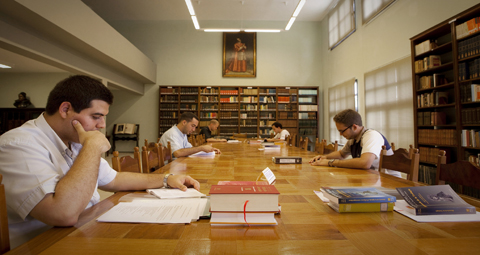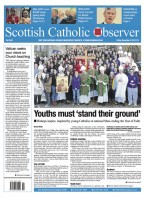October 25 | ![]() 0 COMMENTS
0 COMMENTS ![]() print
print

Catechesis protects the plants, theology grows the tree
By Ronald Rolheiser
There has always been an innate and healthy tension between theology and Catechesis, between what is happening in theology departments in universities and the church pews. Theologians and bishops are often not each other’s favourite people. And that is understandable. Why?
Theology and Catechesis have different purposes, even as both are valid and both are needed.
Catechesis, in essence, is an effort to teach the fundamentals of the faith. Indeed, in its original Greek, catechesis means ‘echoing.’ Thus Catechesis is not so much an effort to understand the Faith as it is to simply ‘echo’ it, namely, to transmit it as clearly as possible. A Catechist then is not trying to prove the foundations of the Faith, although he or she may be trying to give a certain apologetics or rationale for it.
Catechesis does not search for intellectual difficulties or seeming contradictions in the doctrines it teaches, its intent is rather to teach those truths and dogmas to those for whom they are still relatively new. And its audience is precisely those for whom its truths are still relatively new, namely, the neophyte, the religious novice.
Catechesis is therefore, by definition, an essentially conservative endeavour. Its aim is not so much to stretch minds to new places, as it is to teach the basics, to impart principles that help hold minds together. Catechesis tries to build a foundation inside of person, not stretch that foundation.
Theology, on the other hand, does not simply try to echo the Faith, it seeks to understand it and articulate it in a language that makes it palatable to a questioning and critical mind. For more than 900 years, for the most part, Christianity has accepted St Anselm’s definition of theology as ‘faith seeking understanding.’ If Anselm is right, then the task of theology is to critically examine the Christian faith, both in terms of what faith itself is and in terms of what is contained in our
Christian dogmas, so as to produce a vision of both faith and dogma that can handle all the questions that can be thrown at them both from inside the Church and from outside sceptics.
Hence, the audience for theology differs from the audience for Catechesis. Theology has three, ideal, audiences: church-goers who are already Catechised and are seeking a deeper intellectual grasp of their faith, the academy of learning, where faith and dogma are often questioned, and the culture and the world as a whole where Christianity has to justify itself and justify itself intellectually.
Theology therefore is an essentially liberal endeavour. Why? We say theology is liberal for the same reason that we never speak of a ‘Conservative Arts College.’ That would be an oxymoron. Institutions of higher learning, universities, schools of art, and the like are, as Cardinal Newman classically articulated in his book on education, The idea of a university, by definition, liberal, namely, they are intended to stretch people, to make them deal with difficult and critical questions, to bring them to a level of maturity within their discipline (faith and dogma, in this case) so as to leave them unafraid to face whatever issues arise, and to help them to be leaders in their field. Catechesis seeks to produce an orthodox disciple; theology seeks to produce an informed leader.
The Church needs both. It needs to emphasise both Catechesis and theology, focusing both on those who need to learn the essentials of their faith and on those who are trying to make intellectual sense of their Faith. There is, admittedly, an innate tension between the two. The pew invariably feels that theologians are too liberal; while theologians tend to look wearily at the pew, concerned that the hard questions are not being addressed. However it should never be a question of either/or; but always both/and. The Church needs people who are solidly Catechised, who know clearly the essentials of their faith, even as it needs people who have tried to articulate that faith at a more critical level and have stared without fear or denial into the fierce storm of intellectual objections to, ecclesial angers at, and every kind of protest against the Faith.
Orthodoxy is important, but it is meant to be as much a trampoline from which to spring as it is meant to be a container that holds you. For example, the word ‘seminary’ comes from the Latin, seminarium, meaning a ‘greenhouse.’ A greenhouse is not a place to grow an oak tree. It is a place to put young, tender, seedling plants that need protection from the harsher outdoor climate. It is a place to protect a young plant or to grow a very tender plant, but it is not a place to grow huge trees.
The relationship between Catechesis and theology might be characterised in the same way. Catechesis is the seminary, a necessary place to start and protect young and overly-tender plants, whereas theology is a less-protected place where you ultimately grow the oak tree.
n Fr Ronald Rolheiser is a Catholic priest and member of the Missionary Oblates of Mary Immaculate. He is president of the Oblate School of Theology in San Antonio, Texas. Visit his website at www.ronrolheiser.com











